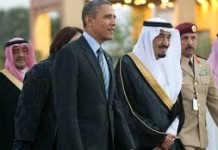Context
 Secretary of State Hillary Clinton’s arrival in Islamabad, Pakistan today was greeted with a massive bombing in the Meena Bazaar of Peshawar City, about a three-hour drive from the Capital. The bombing claimed the lives of close to 100 people and 200 more were injured. Most of the causalities are believed to be women and children.
Secretary of State Hillary Clinton’s arrival in Islamabad, Pakistan today was greeted with a massive bombing in the Meena Bazaar of Peshawar City, about a three-hour drive from the Capital. The bombing claimed the lives of close to 100 people and 200 more were injured. Most of the causalities are believed to be women and children.
This attack was preceded by the ambush on the UN Guest Houses in Kabul earlier in the day. There is the same eerie pattern to these attacks, similar to the ones which occurred on October 8th and 9th. The Indian Embassy in Kabul was attacked on October 8th, followed by the bombing in the Khyber Bazaar in Peshawar City, the next day.
Analysis
.jpg) What can one make of the similarities between the attacks in Kabul and Peshawar – to be specific, the timing and motives behind them? The following are possible explanations:
What can one make of the similarities between the attacks in Kabul and Peshawar – to be specific, the timing and motives behind them? The following are possible explanations:
- The attacks are part of the grand Al Qaeda Af-Pak strategy: to destabilize the region, create ethnic tensions and achieve its objective of driving a wedge between the US and Pakistan, as well as between Pakistan and India. Increasingly, these attacks are viewed as a consequence of Pakistan’s participation in the war against terror.
- Today’s attack in Peshawar is part of escalating regional tussles, in addition to being a response to the ambush on the UN Guest House in Kabul. The India-Afghan nexus was sending a message: any Pakistani involvement in destabilizing Afghanistan is going to have consequences designed to change the risk-reward calculus of Pakistan’s establishment. The message clearly indicates the access and capability of the nexus in Pakistan, demonstrating its ability to deliver a rapid and deadly response.
- The attack in Peshawar today is TTP’s response to Pakistan’s South Waziristan operation and is intended as a warning of the consequences of such an operation. Furthermore, the attacks are meant to drive home the futility of The purpose of the attacks is to pressure Pakistan to act against the Afghan Taliban on its soil. If the Afghan Taliban, which claimed responsibility for the attacks on the UN Guest House, was in fact responsible, it would create problems for Pakistan, which has acted aggressively against the Pakistani Taliban but not the Afghan Taliban; the latter is believed to be using the tribal areas of Pakistan as a safe haven and then launching cross- border attacks against the coalition forces there. This logic resembles that used by Iran when it blamed Jundallah, which is believed to operate out of Baluchistan; also that of India which blames Pakistan for supporting the Kashmiri Jihadists.
The above scenarios point to the complexities inherent in dealing with the regional predicament. The Afghan situation and the bombings, like the ones which occurred in Kabul and Peshawar, cannot be understood apart from the regional and global tussles. Nonetheless, the security counter measures put in place in Peshawar are failing time after time, which will only lead to the collapse of people’s confidence in the government.
Tell Us What You Think



